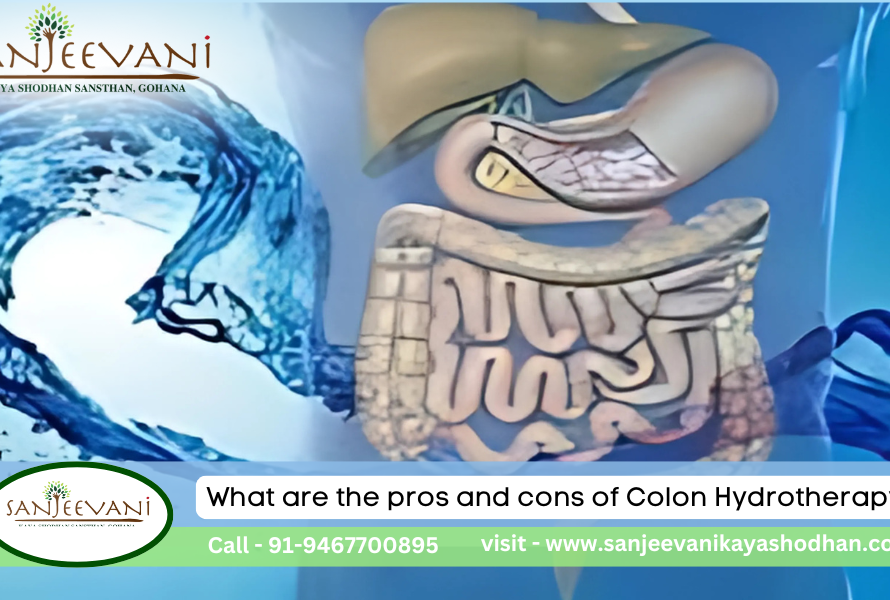Colon cleansing, also known as colon detoxification, has become quite popular in recent years. It’s often marketed as a way to improve digestion, boost energy, and eliminate toxins from the body. But is it really beneficial, or is it just another health trend with more hype than substance? In this blog, we’ll explore the facts and myths about colon cleansing, including hydro colon therapy, to help you understand whether it’s truly good for your health.
What Is Colon Cleansing?
Colon cleansing involves flushing out the colon (large intestine) to remove waste, toxins, and other harmful substances.
Hydro colon therapy (colon hydrotherapy or colonic irrigation): This method involves flushing the colon with water through a tube inserted into the rectum. The procedure is performed by a trained practitioner and can take up to an hour.
While hydro colon therapy has gained attention, people often wonder about the hydro colon therapy price. The cost can vary depending on location, provider experience, and package options. Despite the price, many are drawn to it due to its supposed detoxifying benefits. But is there science to back up these claims?
The Myth vs. The Facts
- Claim: Colon cleansing removes toxins from the body.
Fact: Your body already has a natural way to eliminate toxins. The liver, kidneys, and digestive system work together to remove waste and harmful substances without needing any external help. There’s no scientific evidence that colon cleansing or hydro colon therapy is necessary to assist with this process. The idea of “toxins” building up in the colon is largely a myth.
- Claim: Colon cleansing improves digestion.
Fact: While colon cleansing may lead to temporary relief from constipation or bloating, it doesn’t improve long-term digestive health. A fiber-rich diet, proper hydration, and regular physical activity are much more effective in maintaining a healthy digestive system than occasional colon cleansing sessions.
- Claim: Colon cleansing helps with weight loss.
Fact: Some people may experience temporary weight loss after a colon cleanse or hydro colon therapy session, but this is mainly due to water loss and the removal of stool from the colon. The effects are short-lived, and there’s no evidence to suggest that colon cleansing contributes to sustainable weight loss. Relying on colon cleansing for weight management may lead to dehydration and nutrient imbalances.
Potential Risks of Colon Cleansing
While colon cleansing, especially hydro colon therapy, may seem like a harmless wellness practice, it comes with risks:
Dehydration: Frequent bowel movements caused by colon cleansing can lead to dehydration if you’re not careful.
Electrolyte Imbalance: Losing too much fluid can disturb your electrolyte balance, causing weakness, dizziness, or other health issues.
Infection or Bowel Perforation (with hydro colon therapy): If unsterile equipment or improper techniques are used during hydro colon therapy, there’s a risk of infection or, in rare cases, bowel perforation (a tear in the bowel wall).
Should You Try Colon Cleansing?
In general, colon cleansing is unnecessary for most people, especially if you’re following a healthy diet and lifestyle. If you’re dealing with digestive issues like constipation or bloating, it’s more effective to focus on increasing fiber intake, staying hydrated, and maintaining physical activity. These habits support digestion and overall health better than periodic colon cleanses.
If you’re considering hydro colon therapy, it’s essential to be aware of the hydro colon therapy price and discuss it with a healthcare professional first, especially if you have any underlying health conditions. They can help you make an informed decision and guide you on whether it’s worth the cost and potential risks.
Conclusion
While colon cleansing and hydro colon therapy may offer temporary relief from digestive discomfort, the belief that they are necessary for removing toxins or improving health is mostly a myth. Your body is designed to cleanse itself naturally, and there’s little scientific evidence supporting the need for colon cleansing. Instead, focus on a healthy, fiber-rich diet, stay hydrated, and live an active lifestyle to support your digestive system naturally.
 +91-8607000895
+91-8607000895  Whatsapp
Whatsapp


